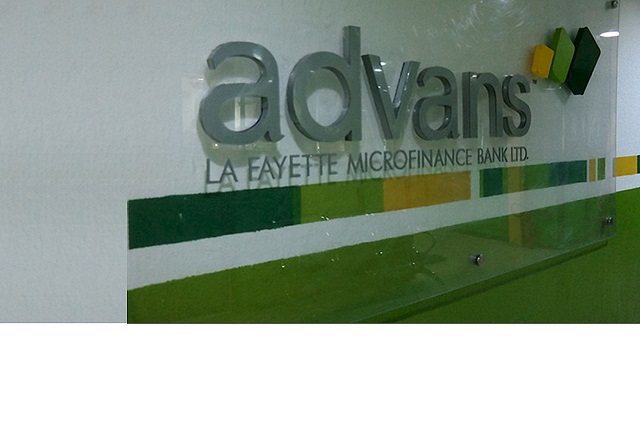While the ministry of industry, trade and investment has been vaunting the giant strides it has made in the area of strengthening small and medium scale entrepreneurs, it is still an open secret that access to capital by small and medium scale entrepreneurs is still an issue. Even when some players in that sector access funds, the conditions that are attached to such facilities are enough to discourage them from even taking such facilities.
Chinyere Nweze, a restauranteur, , who also runs a water-producing factory, said she was discouraged from taking a loan facility from a new generation bank when she was given the conditions she has to meet before she could access such loan. She said she had had to source funds from family and friends, but she admitted it has not been easy.
She said, “It is always difficult to get individuals to advance you loan facilities,” Ogu stated. “While some might even be willing to help out, the fact is that they too have pressing needs which require finance. Therefore, while your target may be, say N500,000, you will be lucky if you get up to N150,000.”
And that is where microfinance banks come into the picture. One new entrant into the growing list of these banks is Advans La Fayette Microfinance Bank. Recently, the Central Bank of Nigeria(CBN), granted La Fayette a national microfinance banking licence. It was a major achievement for the bank which has been operating as a regional player since its inception more than five years ago.
Even the ownership structure of the bank is an indication of the growing confidence of foreigners in the nation’s economy. The bank is majorly owned by French nationals, who have been in Nigeria for over six years now.
“The coming of these individuals to Nigeria and invest, despite the negative stories being peddled about the country was an indication of their abiding faith in Nigeria and its business environment,” a top official of the bank who did not want his name in print told THISDAY shortly after the bank received the CBN nod to operate nationally.
And even the granting of the licence by the CBN was a result of the bank’s unrelenting efforts to break every barrier standing between them and becoming a national financial institution. And now, the determination now is to build on its success over the years.
“With this new development, (attaining CBN National Banking Licence) Advans-La Fayette Microfinance Bank is poised to become one of the major players in the nation’s financial industry,” Guillaume Valence, the managing director and chief executive officer of the bank, told THISDAY. “We are not in the industry to make up the number; we are here to provide a kind of service that will be second to none. We want to earn the confidence of the banking world and we will achieve that.”
A member of the Advans Group, La Fayette was licensed as a financial institution by the apex bank in 2012 and started offering a complete range of financial services and means of payment for its customers including savings accounts, current accounts and fixed deposit accounts. Now, it has been licensed to operate nationally.
Over the years, the bank has grown to be one of Nigeria’s leading microfinance banks fully committed to responding to the needs for financial services of micro, small and medium-sized enterprises (MSMEs) and other members of the public, who have little or limited access to formal financial services through provision of tailored financial services in a sustainable and responsible manner.
Speaking further on the acquisition of the licence, Valence averred that micro, small and medium enterprises were the major contributors to growth and economic development as well as the first employer in Nigeria. He, however, lamented that that they lacked the financial support to develop their businesses.
“They still lack both the necessary business and financial support to develop their activities. By supporting this population, Advans-La Fayette MFB is contributing to the national objective to reduce financial exclusion rate to 20 per cent by 2020. Moreover, Advans-La Fayette MFB has implemented the international best practices when it comes to client protection principles and contributes significantly to the financial literacy of its clients,” Valence stated.
He added that bank had demonstrated great resistance and resilience to a challenging economic environment and had consistently grown its client base and outstanding loan portfolio over the years.
Giving a load-down, he explained that as at December 2018, the bank had disbursed 63,913 loans for a total of N27.9 billion. He also disclosed that the group served more than 900,000 clients and employed over 6,800 staffs, with a gross loan portfolio of €880 million and a total of €510 million deposits.
Valence added that being now a national microfinance bank, the bank would be able to deepen its outreach contributing to the Central Bank of Nigeria’s financial inclusion objective across the country, expanding the provision of microfinance services to Ilorin, Kwara State, which would be the first branch outside Oyo State.
The target of the bank, Valence explained, was to reach 140,000 financially underserved Nigerians in the South-West of Nigeria, before expanding further to other regions in line with the bank’s vision to build a model group of financial institutions which would contribute to strengthening local businesses, creating and sustaining jobs and improving clients’ living standards in order to foster private sector-led economic and social development in Africa, the Middle-East and Asia.
While it remains to be seen how far the bank can go, there is no denying the fact that the bank has started on a very strong note. The heights it has reached within five years of starting operations which culminated in the acquisition of the National Banking Licence from the CBN were an indication of the innovative approach the bank has adopted over the years.
Even if all looks rosy, the bank still has work to do. It is gratifying that the bank actually had the intention of reaching over 140,000 financially underserved Nigerians in the South-west region before reaching to other parts of the country. But the downside is that the main job that needs to be done is earning the confidence of the banking public, especially those who fall within the categories of those it wants to target.
It is when the bank is able to do this that it can say it has really achieved its objective and perhaps, many SMEs will be able to tell La Fayette Microfinance Bank: it is nice doing business with you.













